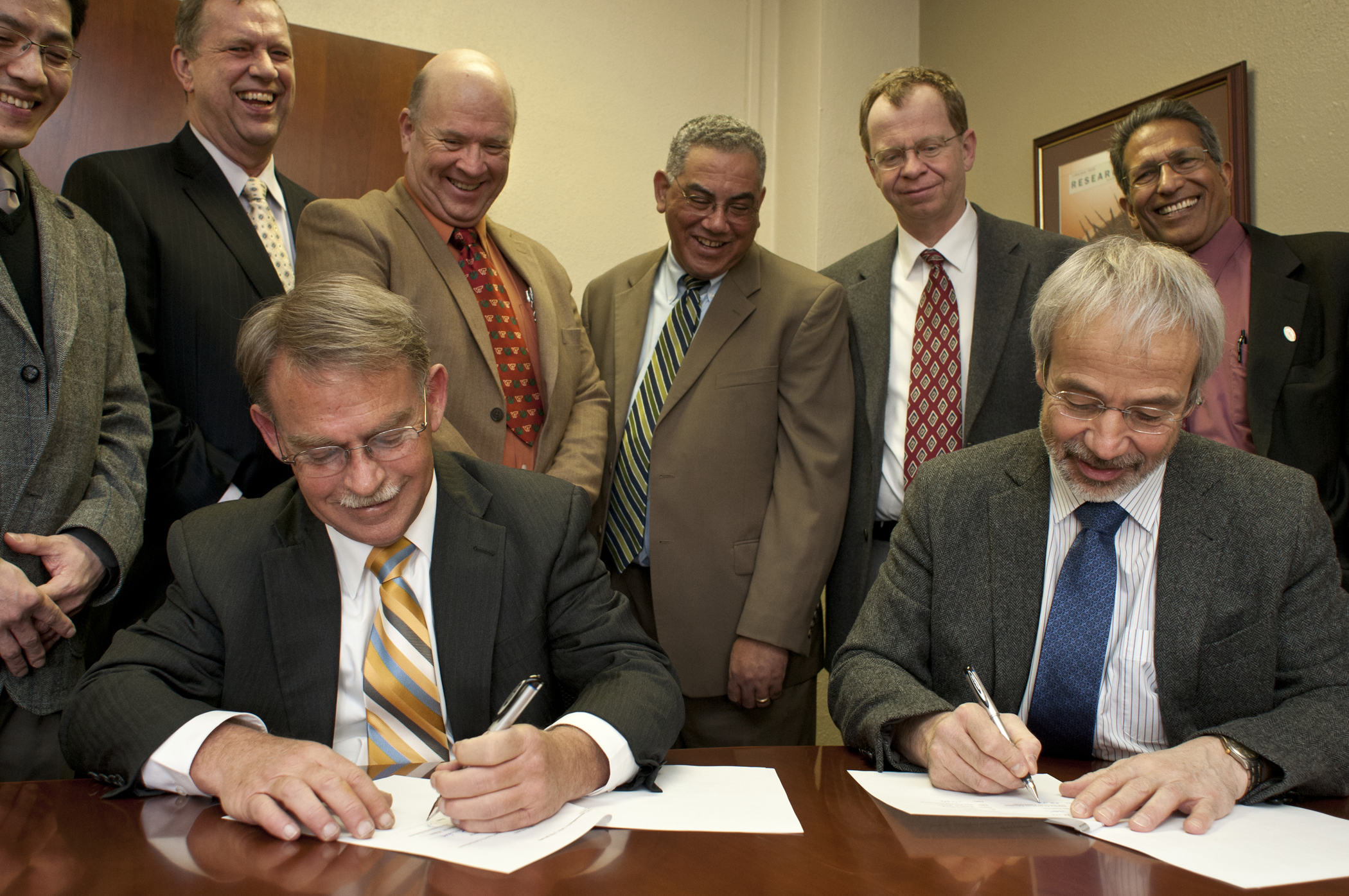Virginia Tech, Oak Ridge National Laboratory collaborate on wireless research

Virginia Tech and UT-Battelle LLC have signed a five-year memorandum of understanding to collaborate on wireless communication and cognitive radio research at Virginia Tech, announced Robert Walters, vice president for research at Virginia Tech.
UT-Battelle, which manages and operates Oak Ridge National Laboratory (ORNL), will be working with Wireless@Virginia Tech, one of the largest university wireless research groups in the U.S. Wireless@Virginia Tech, which was formed in 2006, includes several notable laboratories of wireless technologies.
The aim of the collaboration is to pursue and execute joint programs in wireless communications and to create joint intellectual property in the form of software, algorithms, and research papers. Special emphasis will be on developing cognitive radio systems, radios that incorporate artificial intelligence into their operation. Both groups have a strong research program in this area, yet have pursued different applications for the technology.
"UT-Battelle will be able to provide Wireless@Virginia Tech with third party resources, such as waveform-specific wireless testbeds and hardware development," said Mark Buckner, director of the ORNL cognitive radio program.
"In addition to the research partnership, we look forward to the opportunities that will be afforded to students and postdocs to work with the talented and experienced engineering staff at ORNL," said Robert McGwier, director of research for the Hume Center for National Security and Technology and professor of electrical and computer engineering at Virginia Tech.
Wireless@Virginia Tech, a research center within the Institute for Critical Technology and Applied Science, brings together researchers, facilities, equipment, and expertise from across the university to focus on multidisciplinary solutions to "Invent the Future" of wireless. While expertise lies deep within electrical engineering, such as antenna design, wireless networking, communication systems, micro-electronics, radio frequency electronics, and system integration, disciplines outside of electrical engineering, such as computer science, mathematics, economics, and business, also make up the Wireless@Virginia Tech team.
Dedicated to its motto, Ut Prosim (That I May Serve), Virginia Tech takes a hands-on, engaging approach to education, preparing scholars to be leaders in their fields and communities. As the commonwealth’s most comprehensive university and its leading research institution, Virginia Tech offers 240 undergraduate and graduate degree programs to more than 31,000 students and manages a research portfolio of $513 million. The university fulfills its land-grant mission of transforming knowledge to practice through technological leadership and by fueling economic growth and job creation locally, regionally, and across Virginia.




